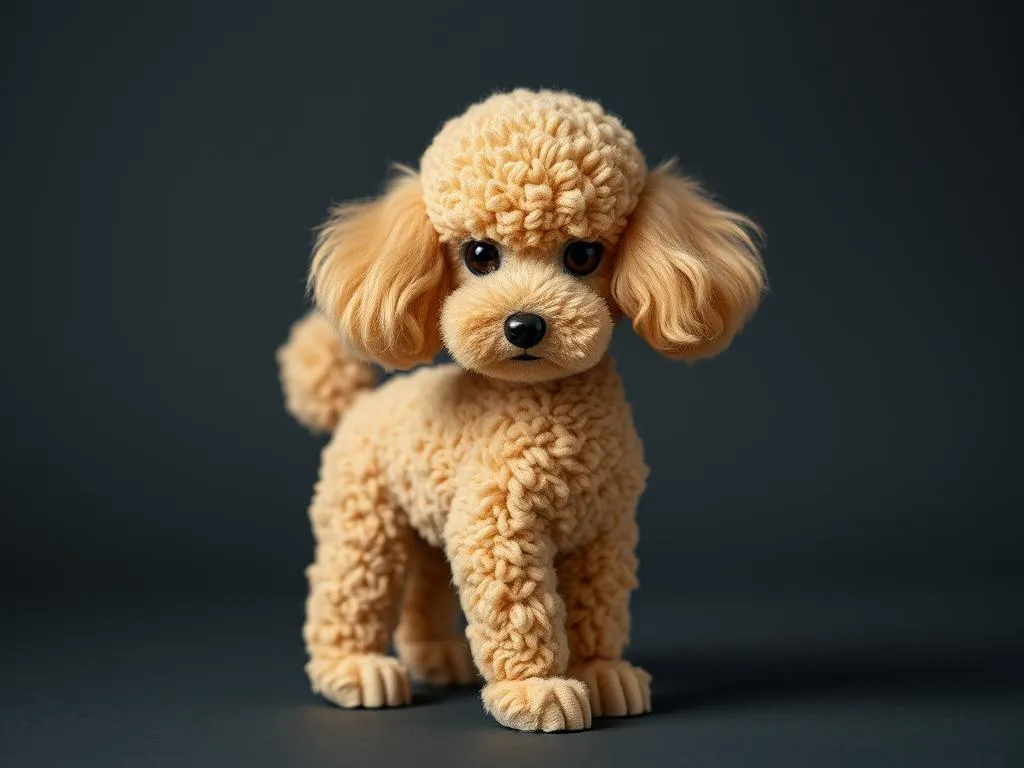
Understanding different dog breeds is essential for anyone considering bringing a furry companion into their home. With a plethora of breeds to choose from, each with distinct characteristics and needs, it’s vital to make an informed decision. Among these breeds, the Toy Poodle stands out as a popular choice, charming dog lovers with its intelligence, affectionate nature, and hypoallergenic coat. This article delves deep into the fascinating world of Toy Poodles, exploring their history, characteristics, care requirements, and much more.
Overview of Dog Breeds
What is a Dog Breed?
A dog breed is a specific group of dogs that share common characteristics, such as appearance, temperament, and behavior. The concept of dog breeding dates back thousands of years, with ancient civilizations selectively breeding dogs for various purposes, including hunting, herding, and companionship. Today, there are hundreds of recognized breeds, each with its unique traits and roles.
Factors Influencing Dog Breeds
Several factors influence the development and characteristics of dog breeds:
- Genetics and Physical Characteristics: The genetic makeup of a breed determines its physical traits, such as size, coat type, and color.
- Purpose of Breeding: Dogs have been bred for specific functions, whether as working dogs, show dogs, or family companions.
- Size, Temperament, and Grooming Needs: These factors can vary significantly between breeds, impacting the owner’s experience with the dog.
Popular Dog Breeds
Some of the most popular breeds include the Labrador Retriever, German Shepherd, and Golden Retriever. Each of these breeds has its loyal fan base and unique qualities that cater to different lifestyles. However, when it comes to small, intelligent, and highly trainable dogs, the Toy Poodle deserves special attention.
Introduction to Toy Poodles
History of the Toy Poodle
The Poodle breed originated in Germany as a water retriever. The name “Poodle” derives from the German word “Pudel,” meaning “to splash in water.” Over time, the breed spread to France, where it became popular in various sizes, including the Standard, Miniature, and Toy variants. The Toy Poodle was developed in the early 20th century to serve as a companion dog, prized for its smaller size and playful disposition. Historically, Toy Poodles were often seen in royal courts and as fashionable pets, showcasing their status as beloved companions.
Physical Characteristics
The Toy Poodle is the smallest of the Poodle variants, typically weighing between 4 to 6 pounds and standing about 10 inches tall at the shoulder. They have a distinctive curly coat that is not only hypoallergenic but also comes in various colors, including white, black, apricot, and gray. Their expressive eyes and long, graceful ears contribute to their overall charm. Toy Poodles also have a well-proportioned body, with a long neck and a tail that is often docked or left natural.
Temperament and Behavior
Toy Poodles are known for their vibrant personalities. They are intelligent, eager to please, and highly trainable, making them an excellent choice for obedience training and agility sports. Their social nature means they thrive on interaction with their human companions and can become attached to their families. While generally friendly, they can be reserved around strangers, which can make them excellent watchdogs. Their playful demeanor makes them great companions for families and individuals alike.
Care and Maintenance of Toy Poodles
Grooming Needs
Grooming is a crucial aspect of caring for a Toy Poodle. Their curly coat requires regular maintenance to prevent matting and tangling. Owners should plan to groom their Toy Poodle every 4 to 6 weeks. Regular brushing is essential, ideally daily, to keep their coat healthy and free of debris. Bathing should occur every month or as needed, using a gentle dog shampoo.
- Ear Cleaning: Due to their floppy ears, Toy Poodles are prone to ear infections. Regular checks and cleaning are necessary to maintain ear health.
- Nail Trimming: Keeping their nails short is important to prevent discomfort and promote healthy walking.
Diet and Nutrition
Proper nutrition is vital for the health and longevity of your Toy Poodle. A balanced diet should consist of high-quality dog food that meets their specific needs. Whether you choose dry kibble, wet food, or homemade meals, ensure that the diet is rich in protein and essential nutrients.
- Portion Control: Toy Poodles have small stomachs, so portion control is crucial to prevent obesity. Follow feeding guidelines based on your dog’s weight and activity level.
- Feeding Schedule: Most Toy Poodles thrive on two meals a day, spaced evenly to maintain energy levels and digestion.
Exercise Requirements
Despite their small size, Toy Poodles have a lot of energy and require regular exercise. Daily walks, playtime, and mental stimulation are essential for their well-being. Engaging in interactive games like fetch or puzzle toys can help keep their minds sharp.
- Daily Exercise Needs: Aim for at least 30 minutes of physical activity daily to keep your Toy Poodle happy and healthy.
- Suitable Activities: Activities such as agility training, obedience classes, and social playdates can provide both physical and mental stimulation.
Health Considerations
Common Health Issues
Like all breeds, Toy Poodles are susceptible to certain genetic health issues. Some common health concerns include:
- Hip Dysplasia: A genetic condition that affects the hip joint, leading to arthritis.
- Eye Problems: Conditions like progressive retinal atrophy (PRA) can occur in Toy Poodles, affecting their vision.
Regular health checks and vaccinations are crucial for early detection and management of potential health issues.
Preventative Care
Preventative care is essential in keeping your Toy Poodle healthy:
- Regular Vet Visits: Schedule routine check-ups to monitor your dog’s health and vaccinations.
- Dental Care: Oral hygiene is vital, so brush your Toy Poodle’s teeth regularly and consider dental treats to promote healthy gums and teeth.
- Spaying/Neutering Considerations: Discuss spaying or neutering options with your veterinarian for responsible pet ownership.
Training and Socialization
Training Basics
Training a Toy Poodle is a rewarding experience due to their intelligence and eagerness to learn. Using positive reinforcement methods, such as treats and praise, helps establish a strong bond between you and your dog.
- Recommended Training Methods: Start with basic commands and gradually introduce more complex tricks. Consistency and patience are key.
- Positive Reinforcement: Rewarding good behavior encourages your Toy Poodle to learn and repeat desired actions.
Socialization Techniques
Socializing your Toy Poodle is vital for developing a well-rounded dog. Early exposure to different environments, people, and other animals can help prevent behavioral issues.
- Introducing New Environments: Take your Toy Poodle to parks, pet-friendly stores, and gatherings to build confidence.
- Importance of Early Socialization: The first few months of life are critical for socialization, so make the most of this time to expose them to various experiences.
Living with a Toy Poodle
Ideal Living Conditions
Toy Poodles adapt well to various living situations. They thrive in apartments and homes alike, provided they receive sufficient attention and exercise.
- Best Living Environments: A small living space is manageable as long as you can provide daily walks and playtime.
- Considerations for Families and Singles: Toy Poodles can fit into any lifestyle, making them suitable for families with children, singles, or seniors.
Compatibility with Children and Other Pets
Toy Poodles generally get along well with children and other pets, provided they are socialized early.
- Interaction with Children: Their playful nature makes them great companions for kids, but supervision is essential to ensure safe play.
- Behavior Around Other Animals: Toy Poodles can coexist peacefully with other pets, but introductions should be managed carefully.
Lifespan and Aging
The average lifespan of a Toy Poodle is around 12 to 15 years, but with proper care, they can live even longer.
- Tips for Caring for Senior Toy Poodles: As your Toy Poodle ages, adjust their diet, exercise routines, and health check frequency to accommodate their changing needs.
Conclusion
The Toy Poodle is a unique breed that brings joy, intelligence, and companionship to countless households. With their charming personality and adaptability, they make excellent pets for families and individuals alike. Owning a Toy Poodle comes with responsibilities, from grooming and training to health care and socialization. Understanding these needs will help ensure a fulfilling and lasting relationship between you and your furry friend. With careful consideration of your lifestyle and commitment, welcoming a Toy Poodle into your home can be one of the most rewarding decisions you ever make.









